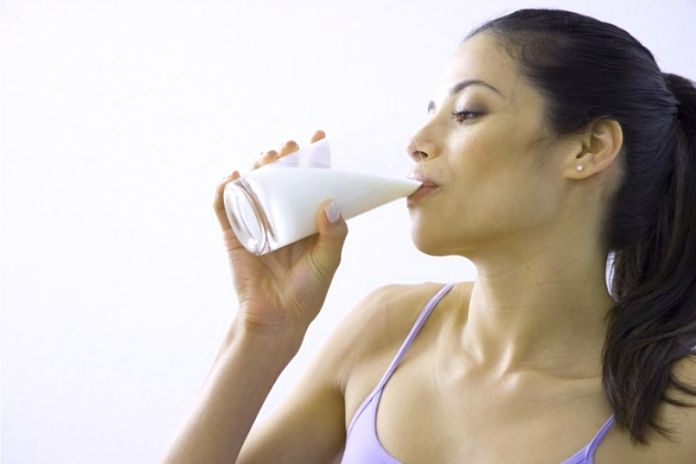Drinking milk for more stable bones – that’s what many heard in their childhood. What’s up “So that the bones get strong”: With this announcement, many people were encouraged as children to drink a glass of milk. Only: is that even true? To do this, you have to go back a bit.
Stable bones that do not break even in old age and are spared from osteoporosis are what everyone wants for their own body. The way there seems to be mapped out: diligently put milk, quark and cheese on the menu – and you’re done. After all, it is dairy products that are essential for stable and healthy bones. Or? Does milk really make bones strong?
The Three Decisive Factors For Bone Stability
Calcium
One thing is clear: if you talk about stable bones, you can’t ignore calcium. “This mineral is an essential part of the skeletal mass,” explains Prof. Diana Rubin, board member of the German Society for Nutritional Medicine (DGEM). Around 98 percent of the calcium in the body is bound in the bones, thus contributing significantly to their stability.
Vitamin D
But even if calcium is essential for bone stability, the mineral needs support: “Without vitamin D, calcium cannot be built into the bones,” says Prof. Achim Bub, head of the study center for human nutrition at the Max Rubner Institute, the federal research institute for Diet and Groceries.
The body forms a preliminary stage for the vitamin via the UV radiation that hits the skin in the summer months. In this way, the body covers a large part of the vitamin D requirement itself. Fish, especially fatty sea fish such as herring or salmon, also provide the body with vitamin D.
Move
In addition to calcium and vitamin D, there is a third factor for stable bones: exercise. “The physical strain creates a certain form of stress in the body,” says Bub. “The muscles and bones build up over time to be able to cope with this stress.”
So there are several factors at play. The question remains: What kind of diet do you use to make your skeleton strong?
Do Milk And Cheese Make The Bones Strong?
This is where different foods come into play – including dairy products. Hard cheeses like Parmesan and Emmentaler have a high calcium content of around 350 milligrams (mg) per slice. A glass of milk contains about 240 mg of calcium. “The advantage of milk in contrast to hard cheese is, of course, that you can consume more of it,” says nutritionist Rubin.
Vegetable Milk Alternatives, Mineral Water
Incidentally, it doesn’t necessarily have to be cow’s milk: Many plant-based milk alternatives are fortified with calcium so that the need can also be met in this way.
Or you reach for a water bottle: “Mineral waters contain calcium, which is just as readily available for the body as it is from dairy products,” explains Bub, who researches the influence of food on the metabolism. For orientation: If mineral water contains more than 300 mg calcium per litre, it is considered rich in calcium.
Numerous vegetables provide calcium to the body, including kale, spinach, arugula, and broccoli.
Daily Calcium Requirement For Children And Adults
“A sufficient supply of calcium is essential in children and adolescents. It is in this phase that the greatest increase in length takes place,” says Achim Bub. The German Nutrition Society recommends a daily intake of 1200 mg calcium for adolescents between 13 and 18. For adults, it recommends 1000 mg.
Conclusion: When it comes to strong bones, it is clear that milk does not do it alone. Dairy products can be a building block, but there is no reason to glorify them as a miracle cure.
Conclusion
One should, therefore, not rely on the daily glass of milk alone. It is better to rely on the combination of things that are good for the bones. That means a balanced diet with various calcium sources, an adequate supply of vitamin D and enough exercise in everyday life.
Also Read: WITH THESE 7 TIPS, YOU WILL MANAGE TO DRINK 3 LITRES OF WATER A DAY

